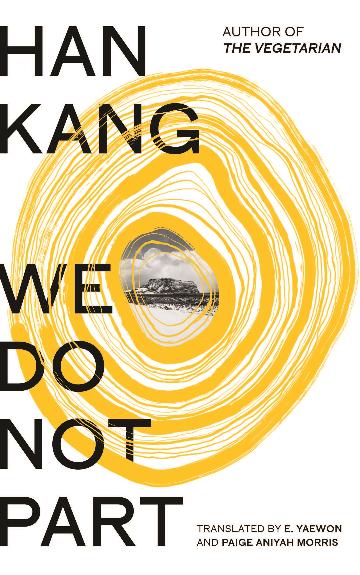Han Kang
We Do Not Part
We Do Not Part
Couldn't load pickup availability
Susan Midalia's Review
Many of us will be familiar with the name Jeju, the South Korean airline which recently lost one its planes in a disastrous crash that killed 197 people. Far less well known is the fact that Jeju, one of nation’s islands, was the site of the brutal mass murders of Communist insurgents by the South Korean military, aided by the American government, from1948 to1949. This shockingly gruesome story, in which somewhere between 14,000 and 30,00 people, including children and babies, were bayonetted, shot and thrown into deep ditches or the ocean, was for decades deliberately censored by a succession of self-interested and powerful governments.
The insistence on revealing this repressed historical truth lies at the ethical heart of Nobel Prize-winning South Korean author Han Kang’s latest novel, We Do Not Part. Haunting and disturbing, as well as a testament to individual resilience and friendship, Kang’s new work of fiction is also fundamentally concerned with the issue of representation: with how to make such a story matter to contemporary readers in a culture now pervaded by material of unspeakable violence. As the novel’s narrator puts it, late in the novel, having listened to many horrific stories and viewed terrifying images: “I could feel myself changing. To the point where it seemed nothing one human being did to another could ever shock me again.” Kang’s task, then, is to “make it new” – in the famous words of the modernist poet Ezra Pound – in order to fully engage and affect the reader, while at the same time drawing on the artistic traditions of the past. We Do Not Part follows this imperative by being formally innovative while incorporating researched interviews and other archival material; the effect is both highly educative – for this reader, at least – chilling, and profoundly moving.
Kang’s novel succeeds brilliantly as both a necessary act of historical retrieval and a work of fiction that cleverly works by deferral. For much of the novel, the dark realities of the massacres are approached obliquely and at several removes. We learn about, for example, the narrator’s life-long friend Inseon’s attempts to make documentaries about past atrocities, and about the strange behaviour of her mother, a survivor of the Jeju massacres, without being given much context. We are told that Inseon’s father disappeared years ago, but nothing definite is revealed until the novel’s conclusion. This structure of belatedness makes the final revelations all the more affecting. It also echoes what has happened and continues to happen in real life: it can and often does take many years for systematic government cover-ups to come to light, and for victims of trauma to be able to speak about their suffering. We Do Not Part is also a masterly evocation of the psychological displacement passed down to the next generation. We see this in, for example, a character’s obsessive concern with the welfare of two pet budgerigars: as if the valiant attempt to keep the tiny birds alive can somehow compensate for the suffering of the thousands of people killed on the island. Here, as throughout the novel, we are not told what to think: Kang subtly leaves it up to the reader to create a possible meaning.
I should also say that this novel form is highly challenging. The question of ‘who speaks’ is sometimes uncertain, perhaps as a way of suggesting the inseparability of friends, of mothers and children, of past and present: that they cannot, ultimately, be parted. As well, the plot moves backwards and forwards in time, and the line between the real and the imagined is sometimes blurred. The meanings of the novel’s central symbols of snow, birds, shadows and water remain tantalisingly complex. But it’s well worth negotiating these formal features not only to learn about a ruthlessly censored historical event but also to experience a writer’s attempt to defamiliarize a depressingly familiar story of the human capacity for savagery.
We Do Not Part will be released in Australia in February. You can pre-order your copy at the Lane Bookshop now.
Publisher's Review
Like a long winter's dream, this haunting and visionary new novel from 2024 Nobel Prize winner Han Kang takes us on a journey from contemporary South Korea into its painful history
Beginning one morning in December, We Do Not Part traces the path of Kyungha as she travels from the city of Seoul into the forests of Jeju Island, to the home of her old friend Inseon. Hospitalized following an accident, Inseon has begged Kyungha to hasten there to feed her beloved pet bird, who will otherwise die.
Kyungha takes the first plane to Jeju, but a snowstorm hits the island the moment she arrives, plunging her into a world of white. Beset by icy wind and snow squalls, she wonders if she will arrive in time to save the bird - or even survive the terrible cold which envelops her with every step. As night falls, she struggles her way to Inseon's house, unaware as yet of the descent into darkness which awaits her.
There, the long-buried story of Inseon's family surges into light, in dreams and memories passed from mother to daughter, and in a painstakingly assembled archive documenting a terrible massacre on the island seventy years before.
We Do Not Part is a hymn to friendship, a eulogy to the imagination and above all an indictment against forgetting.
Share


